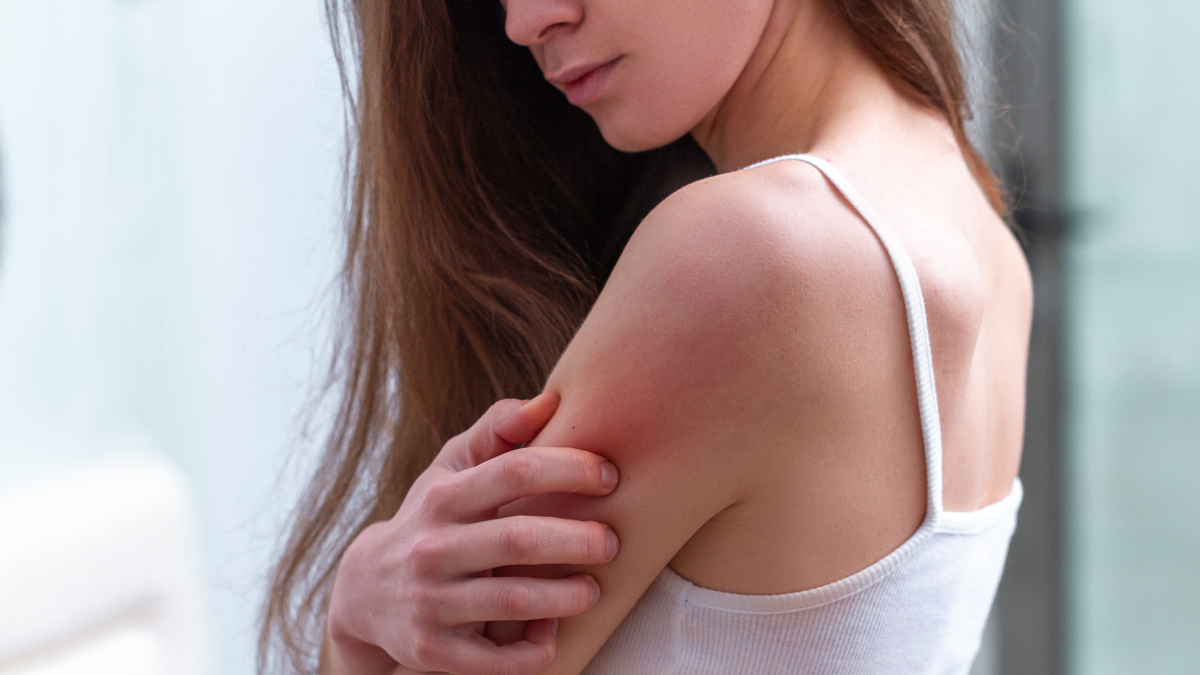How To Control Eczema: Causes, Symptoms, And Effective Treatment Options

Control Eczema: Eczema, a common inflammatory skin condition, can cause dryness, intense itching, and irritation.
Although the exact cause of eczema is not entirely known, it is believed to be linked to a combination of genetic, environmental, immune system deficiencies, and skin barrier dysfunctions. This article will explore the causes of eczema, common triggers, individuals who are most at risk, and various methods to manage and treat the condition effectively.
How To Control Eczema
What Causes Eczema?
Control Eczema, The root cause of eczema remains unclear, but experts believe it results from an interplay of several factors:
Genetics: Eczema often runs in families. According to dermatologist Jeremy Brauer, having relatives with eczema, asthma, or seasonal allergies increases the likelihood of developing the condition.
Skin Barrier Dysfunction: People with eczema often have problems with their skin barrier, which makes it harder for the skin to retain moisture and protects it less effectively from allergens and microbes.
Environmental Triggers and Allergens: Elements like pollen, pollution, pet dander, and cold, dry weather can worsen eczema symptoms.
Food Allergies: Certain foods such as peanuts, tree nuts, gluten, and dairy can exacerbate eczema flare-ups.
Irritants: Ingredients in soaps, fragrances, lotions, and cleaning products can act as irritants, aggravating eczema-prone skin.
Hormonal Changes: Hormonal fluctuations, particularly during menstruation, pregnancy, or menopause, can worsen eczema symptoms.
Who Is Most At Risk?

Control Eczema, Eczema can occur at any age but is most commonly seen in children. People with a family history of allergic conditions are more susceptible to developing eczema. While many children outgrow the condition, it can persist into adulthood for some.
How To Treat And Manage Eczema

Control Eczema, Eczema cannot be completely cured, but several strategies can help manage the symptoms and prevent flare-ups. Below are some effective treatment and prevention methods:
1. Antihistamines
These anti-allergy medications can help reduce itching and discomfort caused by eczema.
2. Moisturizers
Control Eczema, Using hypoallergenic lotions and creams is essential for keeping the skin hydrated and preventing dryness and itching.
3. Corticosteroid Creams
These topical treatments help reduce inflammation and soothe irritated skin.
4. Avoiding Triggers
Control Eczema, Staying away from scented products, pet dander, pollen, and other known irritants is crucial. Keeping a clean living environment also helps.
5. Stress Management
Stress can significantly exacerbate eczema. Employing stress-relieving techniques, such as meditation, exercise, or therapy, may help manage the condition.
6. Wearing Soft Fabrics
Opt for loose, soft clothing made of cotton or other smooth materials to avoid irritation. Avoid tight or rough fabrics, like wool, which can trigger flare-ups.
7. Using Humidifiers
Control Eczema, Dry air can worsen eczema, especially in winter. A humidifier adds moisture to the air, helping to keep the skin hydrated.
8. Prescription Medications
In severe cases, a healthcare provider may prescribe more potent medications, such as oral corticosteroids, immunosuppressants, or biologics.
9. Phototherapy
Control Eczema, UVB phototherapy is a medical treatment where ultraviolet light is used to reduce eczema inflammation, often in combination with topical treatments.
Control Eczema, By understanding and avoiding common triggers and using appropriate treatments, those suffering from eczema can significantly improve their skin’s condition and quality of life. Although there is no cure, ongoing management strategies can keep eczema under control.
Also Read:
How To Get Rid Of Back And Shoulder Acne In Three Simple Steps
Neck Wrinkles Treatment: The 9 Best Home Remedies For Neck Wrinkles
Doctor’s Recommendation: Avoid Removing Buccal Fat
Salicylic Acid Effect On Face: What Experts Say About Salicylic Acid




